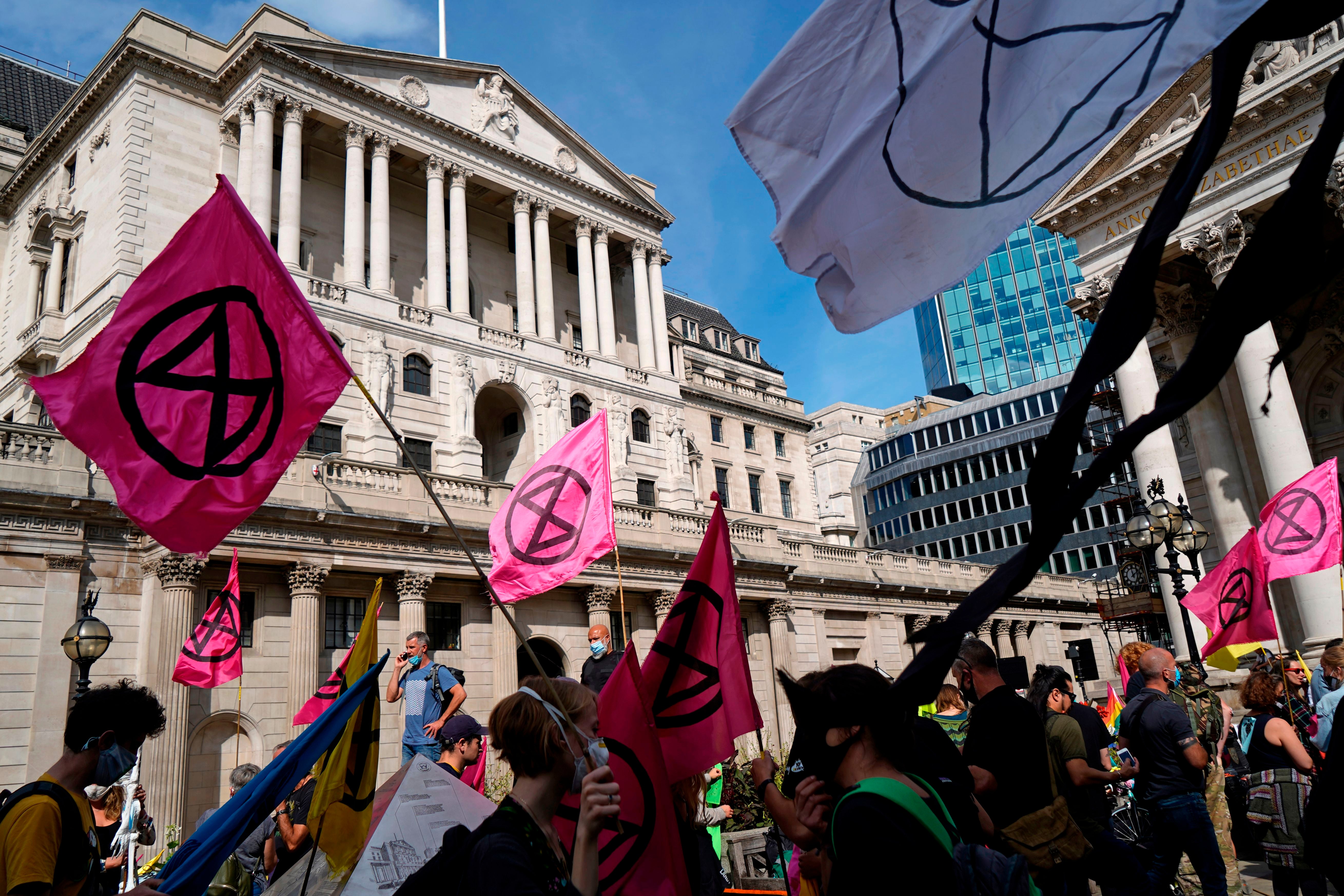Nearly a third of UK’s largest businesses commit to net zero by 2050
‘Merely setting a target is yesterday’s benchmark’, one analyst said

Your support helps us to tell the story
From reproductive rights to climate change to Big Tech, The Independent is on the ground when the story is developing. Whether it's investigating the financials of Elon Musk's pro-Trump PAC or producing our latest documentary, 'The A Word', which shines a light on the American women fighting for reproductive rights, we know how important it is to parse out the facts from the messaging.
At such a critical moment in US history, we need reporters on the ground. Your donation allows us to keep sending journalists to speak to both sides of the story.
The Independent is trusted by Americans across the entire political spectrum. And unlike many other quality news outlets, we choose not to lock Americans out of our reporting and analysis with paywalls. We believe quality journalism should be available to everyone, paid for by those who can afford it.
Your support makes all the difference.Nearly a third of the UK’s largest businesses have now committed to reaching net-zero emissions by 2050, according to the government.
As of Tuesday, 30 of the UK’s FTSE 100, the index of the UK’s largest listed companies, have pledged to cut their emissions to zero by 2050 or before, the government said.
Firms promising to reach net zero by 2050 or before include Sainsbury’s, AstraZeneca, the pharmaceutical company behind the Covid-19 vaccine, and Unilever, the British consumer goods company that has previously been accused of using palm oil linked to deforestation.
The companies made the commitments as part of the UN’s Race to Zero campaign, which is encouraging greater climate action from businesses, cities and regions worldwide.
Announcing the news, business secretary Kwasi Kwarteng said that firms “wield incredible influence to drive change across society and the economy” and encouraged more British companies to sign up to the campaign.
Read more:
However, experts told The Independent that net-zero pledges from businesses must be accompanied by concrete action plans.
Richard Black, senior associate at the Energy and Climate Intelligence Unit, a non-profit based in London, said: “It’s good to see this number of leading UK-based businesses setting targets for mid-century.
“However, merely setting a target is yesterday’s benchmark – if businesses are serious about reaching net zero they need also to have a plan including interim targets, be precise about what they’re promising, and commit to publishing annual progress reports.
“That’s increasingly what both shareholders and stakeholders are demanding; and if these companies don’t have those elements in place, they should be committing to get them in place before Cop26, as laid out under the Race to Zero.”
Cop26 is a key round of UN climate talks that will be hosted by the UK in Glasgow later this year. Ahead of the talks, the UK hopes to galvanise greater ambition on tackling the climate crisis from countries, regions and businesses across the world.
Tougher action is needed if the world is to limit global warming to well below 2C above pre-industrial levels by 2100, which is the goal agreed by countries under the Paris Agreement.
Analysis published earlier this month by the global asset management firm Arabesque found that 31 FTSE 100 companies are currently emitting CO2 at a rate that contravenes the Paris goals.
Dr Doug Parr, chief scientist for Greenpeace UK, said that “claims of net zero” from businesses should be carefully monitored to ensure that they deliver.
“While it is heartening to see UK business recognising its responsibility for climate change, for these commitments to be genuinely meaningful, ‘net zero emissions’ cannot be allowed to mean whatever companies find it convenient to mean,” he said.
“Claims of net zero need effective policing – or businesses with detailed, costed and timetabled investment plans will be difficult to distinguish from those that provide a refuge for dodgy carbon accounting, discredited offsetting schemes [and] greenwash.”
Join our commenting forum
Join thought-provoking conversations, follow other Independent readers and see their replies
Comments